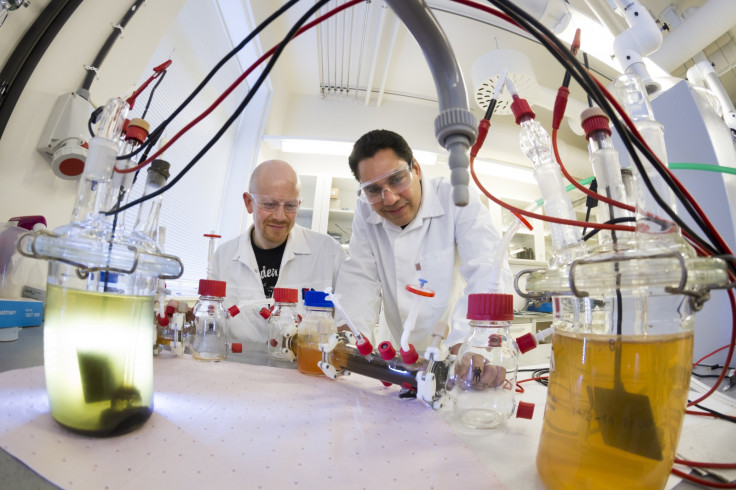Bacteria used to yield pure water and produce hydrogen, the fuel of the future

In two separate research findings, scientists have used bacteria in processes that can deliver substantial power when scaled up in the future.
While a Sintef team in Norway has a method to deliver purified water, a Missouri researcher has discovered a bacterium that produces hydrogen, the fuel of the future.
The Sintef researchers converted waste water into power using bacteria in an entirely natural process that delivers purified water.
As the bacteria feed on waste water, they produce electrons and protons and the resulting voltage generates electricity.
While the electricity generated is small, it would be adequate to power a small fan or diodes, and is an environmentally friendly process where the end product is purified water.
The team plans to scale up the process to generate the power needed for the water purification.
"In simple terms, this type of fuel cell works because the bacteria consume the waste materials found in the water," explains Sintef researcher Luis Cesar Colmenares, who is running the project together with his colleague Roman Netzer.
The challenge was in finding the bacteria most suited for the job and the right mechanism.
"At the moment, we're not talking about producing large volumes of energy," says Netzer. "But the process is very interesting because water purification processes are very energy-demanding using current technology. We're particularly pleased at being able to produce just as much energy using low-cost materials as others are achieving using much more expensive approaches," he says.
Hydrogen fuel
The researcher at Missouri University of Science and Technology has stumbled upon a bacterium that could help mass-produce hydrogen for fuel cells in the future.
The "Halanaerobium hydrogeninformans" bacterium can produce hydrogen under saline and alkaline conditions, better than modified organisms and could be valuable industrially when the process is scaled up.
Another end product of the hydrogen process is an organic compound, 1, 3-propenediol that finds application in products including composites, adhesives, laminates and coatings. It's also a solvent and can be used as antifreeze.
The researcher came upon the microbe when looking for extremophiles or organisms that can survive under extreme and hostile conditions.
The study is published in Frontiers in Microbiology.
© Copyright IBTimes 2025. All rights reserved.





















